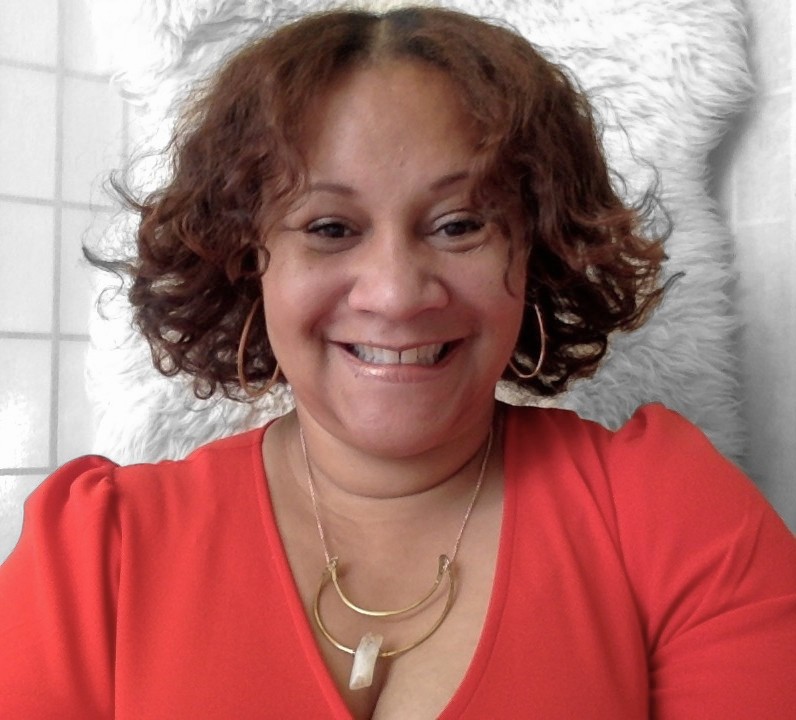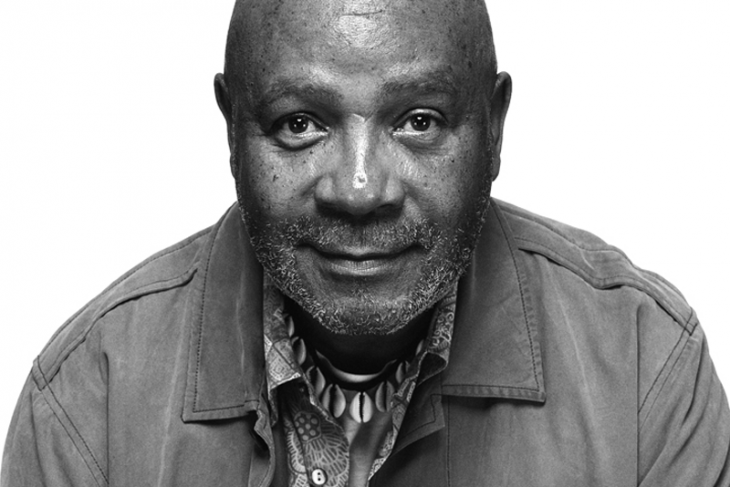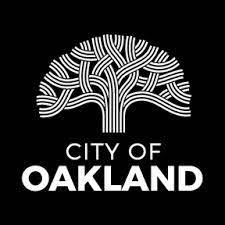
By Meres-Sia Gabriel

Throwing Rocks
The Semi-Biographical Migration Story
of Emory Douglas
_____________________________________
By Meres-Sia Gabriel
“San Francisco is the place where I was raised and grew up, became socially aware, and met my family and extended family that I would never have met otherwise. Most of all it’s where I became the person I am now.” – Emory Douglas
ONE
________________
THE REVOLUTION HAS COME, 1972
Emory knew the drill by now. He sat calmly on the couch with his hands where the cop could see them. While three of “Oakland’s finest” ransacked the apartment, emptying drawers and turning over furniture, a young Black officer—about 19 years old—stood to watch over Emory.
“Is this place boobytrapped?” The lead officer asked aggressively, more to set the tone than to get a real answer.
“No.” Emory could tell the guy was a wild card.
Emory’s thoughts raced back to earlier events of the day when he’d noticed an unfamiliar white man leaving the building at the same time as him. When he returned that evening he saw the same man using something to prop the lobby door open. Tenants had a habit of doing that when they were taking out the trash, but there was something uneasy about this man. Lo and behold, shortly after lying down for the night, Emory was startled awake by the clicking sound of keys at his door. Who had given them the keys?
The young rookie watched Emory intently, probably unaware that the Oakland Police Department recruited klansmen from The South to terrorize his communities. Brainwashed by the propaganda about how “violent” The Panthers were, he raised his pistol and almost squeezed the trigger when Emory went to scratch his nose.
“Let’s go!” The lead officer abruptly gathered his men and left. But not before kicking over a picture of Huey P. Newton.
His mama had already told him he was crazy for joining the Party.
“Yeah child,” he overheard her talking to his aunt when he first joined five years ago. “He done joined some group. The Black cats… or something….” She giggled facetiously, purposely getting the name wrong. “I don’t know. Sound crazy to me. All I know is I got life insurance on him.”
But as crazy as she thought the idea was, we can’t talk about Emory Douglas—the man, the artist, the revolutionary—without talking about his mom and how she got them to California.
#
TWO
________________
PRECURSOR TO A REVOLUTIONARY
Lurene Crawford was born on a boat in Oklahoma to a woman that no one remembers. Had there not been a witness, maybe no one would have remembered Lurene either. There was no birth certificate to document her entrance into the world and any other official records would eventually vanish in a fire. For Lurene, the lack of records meant that her life was hers to invent. Over time she would take the blank space where her age should have been and scribble in her own numbers. “That’s youngblood,” her sister would jokingly tell people. And if anyone dared to suggest they knew her real age, they’d better be ready to rumble because those were fighting words. But that was later.
Barely out of high school, young Lurene left Tulsa on the first bus headed north. She was as much in search of work as she was in her own identity. There was nothing to stay for in Oklahoma. Her beloved stepmother had passed away, she didn’t get along with her father, and then there were those nasty rumors about her biological mother’s “profession.” Lurene had hoped to get away from all that and start anew. But as the old saying goes “no matter where you go, there you are. ” And Lurene’s troubles wouldn’t fade so easily.
“That’s gonna be my wife!” The words slipped out of Emory Sr’s mouth before he even knew what he’d said. The 4’11”, curvy Lurene, had just arrived in Michigan and was visiting her god mom when Emory Sr. happened to stop by. Smitten by this fresh young thing from the south, he lay claim to her before she could even lay claim to herself. Although Lurene wasn’t sure of her own age, she could tell that Emory Sr. was older than her. He already had a job and she figured that maybe he could help her get situated in this cold new city so she accepted his offer for courtship and before long Emory Jr. was born. But for whatever reason, Emory Sr. never married Lurene. Now with a child to raise and signs of early glaucoma setting in, Lurene’s life up north just got infinitely harder.
With no father around, young Emory, or “Junior” as Lurene affectionately called him, clung to his mother, never wanting to be physically apart for too long. At six years old he would even sneak out of his bed at night and find his way to the factory so he could peek through the window and watch her work. But when Lurene wasn’t working at the factory, she was scrubbing floors for the doctor. And when she wasn’t doing that she was partying, drinking, and fighting with boyfriends. The latter may be what actually led to her second migration. The prevailing story of why they moved to California is that the quality of air would help young Emory’s asthma. But the rumor mill suggested that other factors could be involved. Coincidentally, one of Lurene’s boyfriends with whom she was known to have particularly vicious fights, wound up dead. He’d been stabbed to death. Shortly after his funeral, Lurene took Junior and left town.
#
THREE
________________
TWO DAYS AND 16 HOURS
Junior stepped onto the Greyhound bus, his fidgety eyes trying to take in all the details. It didn’t really look like he imagined from the poster in the lobby which promised “Every mile a magnificent mile, every highway a strip of velvet.” The seats weren’t big or cushy but were okay for an eight-year-old on a short adventure. He eagerly climbed into his seat and pushed it back as far as it would go. As they rode, he thought about the little apartment he was leaving, the sofa bed he and his mother slept on in the kitchen, and the shared bathroom down the hall. He would miss playing with his friends in the neighborhood and spending time with his adoptive grandmother Big Mama. He was really going to miss Big Mama because she kept him when his mom was working and partying. That was his second home.
“Here,” Lurene pulled a turkey sandwich out of her purse and handed it to him.
He unwrapped it and asked, “When are we going to be in California?”
When they got on the bus the sun was still shining, now it was setting. Whether an hour had passed or five, it felt like an eternity to Junior.
“Don’t worry about that. We’ll get there when we get there. Now sit up and eat.”
He nibbled quietly on his sandwich and tried to imagine what his new home would be like. Would California look like it did in the movies? He wondered what his California family was like too. His mom told him there would be cousins his age and it wouldn’t be as cold.
He looked out the window and noticed that all signs of city life had faded away. We must be far away from Grand Rapids now, he thought.
“Hmm,” Lurene handed him a small notepad and a short little pencil she’d found in her purse. “Draw something.”
Junior pulled his legs up to his chest and drew until he fell asleep.
The sun had set three times while they were on that bus. Excitement had shifted to boredom. The notebook was all filled up and he was getting tired of turkey sandwiches. Sleep became his only distraction.
“Junior, Junior,” Lurene whispered and nudged his little head off her arm. “We’re here, Junior.”
He popped up from his seat as if he’d never been asleep. He was eager to see the real California! But it was dark outside by the time they arrived. Lurene’s sister Geneva was there to get them and take them back to her house. She couldn’t wait for Junior to meet his cousins, Taffy, Dejuan, and Velda. As he rode in the back seat and took in the sights of San Francisco, California, even in the dark, he could tell it was not like the movies.
#
FOUR
________________
THROWING ROCKS
When I ask my dad about his childhood he chuckles and says, “I was a bad kid, always throwing rocks.” From Grand Rapids to San Francisco, Emory got whoopings for throwing rocks, but he never stopped throwing them. When he joined the Black Panther Party, the tool and the target had changed, but as a Panther, he was still in essence throwing rocks, hoping for that lucky shot to bring down the goliath of US imperialism and oppression. Although his mother didn’t “get it,” it was her fierce tenacity and self-determination that paved the way for him to become the person he is today.
Emory Douglas is a celebrated visual artist and the Former Minister of Culture of the Black Panther Party where he served from 1967 until 1980. He is a father of two (my brother and myself) and the grandfather of five. Born on May 24, 1943, in Grand Rapids, Michigan, he left for California in 1951 when he was eight years old. In 2019, Emory received an Honorary Doctor of Fine Arts from the San Francisco Art Institute, and San Francisco’s Mayor London Breed officially proclaimed May 24th Emory Douglas Day.
~END~
WHAT’S TRUE?
________________
I used some creative license to write this story. Emory doesn’t remember the exact date the police burst into his apartment, but he said it was in the 70s. He also doesn’t remember what happened on the bus ride to California. Therefore, the section 2 days and 16 hours is entirely fictional, except that he did take a Greyhound bus with his mom where his aunt Geneva met them and brought them to her home in San Francisco. Otherwise, the events of this story are mostly true as recounted to me by my father and grandmother, but I have imagined some emotions, conversations, and thoughts.

Meres-Sia Gabriel, interview Julia Beale
Meres-Sia Gabriel is a best-selling author and creator of the online course “Life-Changing Writing in Five Weeks: Write Your Book, Inspire Others, and Leave Your Mark on the World!” She has performed, taught workshops, and spoken at the Universidad de la Tierra, Oregon Shakespeare Festival, and Museum of African Diaspora to name a few. Her poetry is presently showcased in the Oakland Museum’s “Black Power” exhibit.


